July 19, 2024
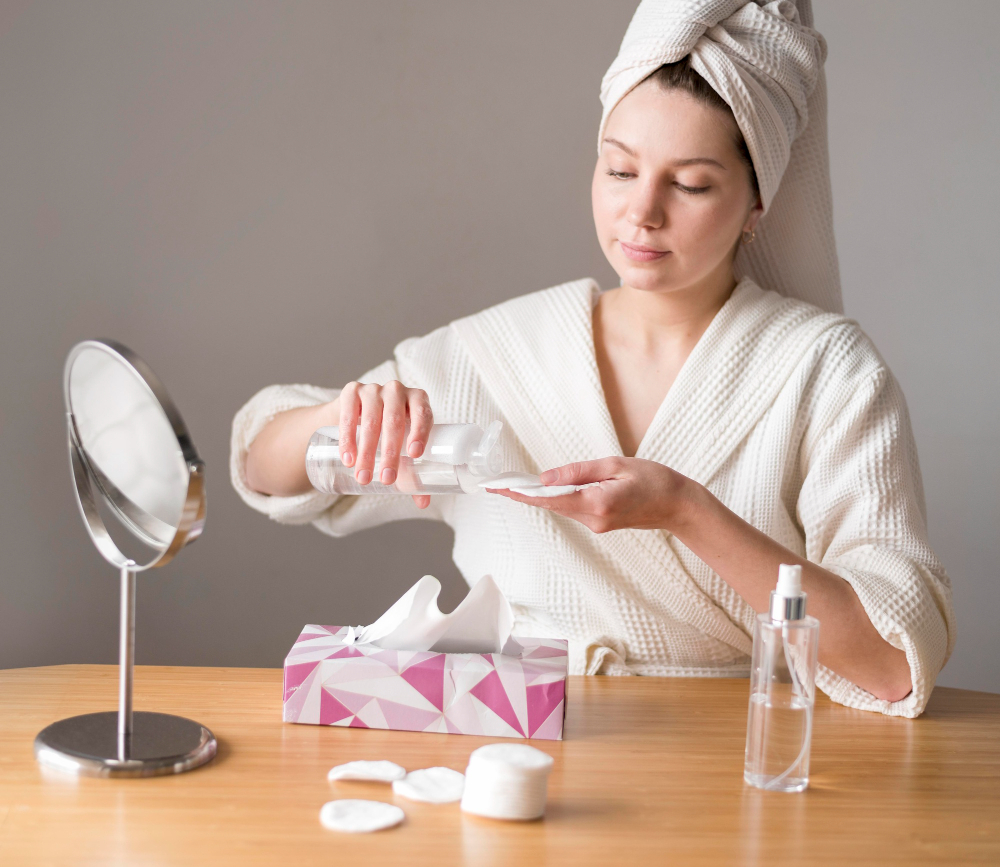
Managing acne is a common concern for many women. An effective skincare routine for acne focuses on key principles such as removing excess oil, keeping pores clear, and using products that aid in healing.
1. How to Care for Acne-Prone Skin?
Amidst the myriad of products and conflicting information, creating a suitable skincare routine can be confusing. However, maintaining daily skincare habits for acne-prone skin is straightforward. You only need a few minutes twice a day to restore skin affected by acne. Here is a basic routine to control acne:
1.1 Gentle Face Cleansing
The first step in caring for acne-prone skin is to cleanse your face gently. Avoid damaging your skin by squeezing pimples, as this can worsen acne or cause scarring. When washing your face, use only your hands or a soft cloth; avoid abrasive materials that could cause pimples to burst and lead to infection.
Make sure you are using a cleanser suitable for your skin type. Your choice of cleanser may depend on whether you use prescription acne treatments. Over-the-counter acne cleansers are suitable for mild acne. Choose a facial cleanser containing salicylic acid or benzoyl peroxide. If you are using prescription acne medication, opt for a gentle cleanser without active ingredients to avoid irritation. Many cleansers on the market, such as Cetaphil or Neutrogena, are excellent choices. Avoid using harsh soap or antibacterial hand wash on your face, as strong soap may not effectively cleanse acne and could irritate your facial skin.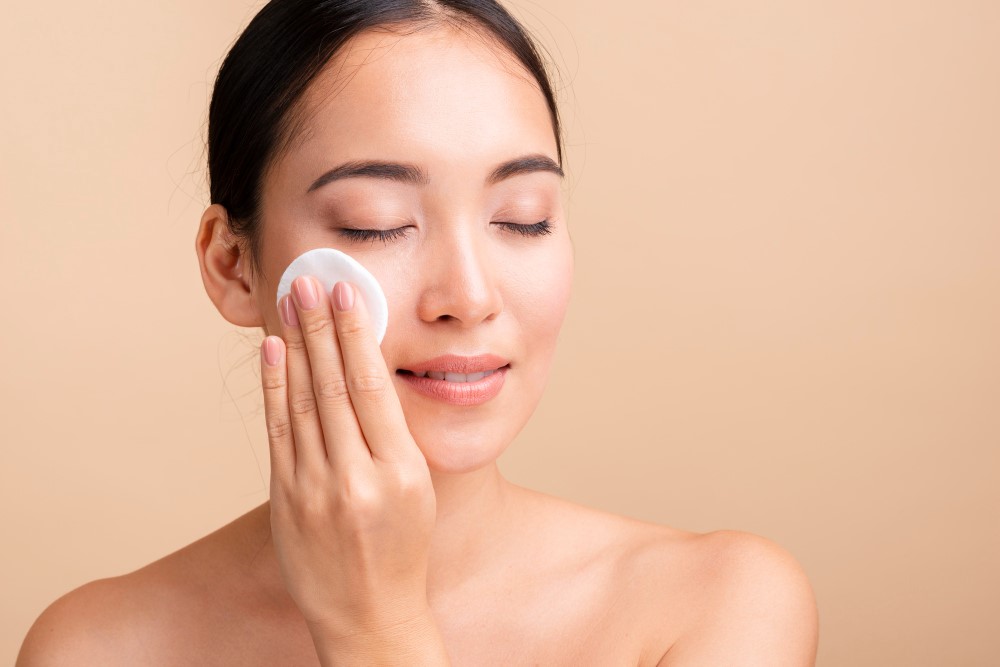
1.2 Using Toner
Toner can help remove excess oil, facial cleansers, and makeup residue from your skin. Avoid using toners or pore-tightening agents that are too dry or irritating to your skin. Choose alcohol-free products, as alcohol can dry and irritate your skin, especially sensitive skin. The best way to use toner is to soak it in a cotton pad and gently apply it all over your face and neck. Doing so will help remove residual makeup, facial cleanser residue, and excess oil.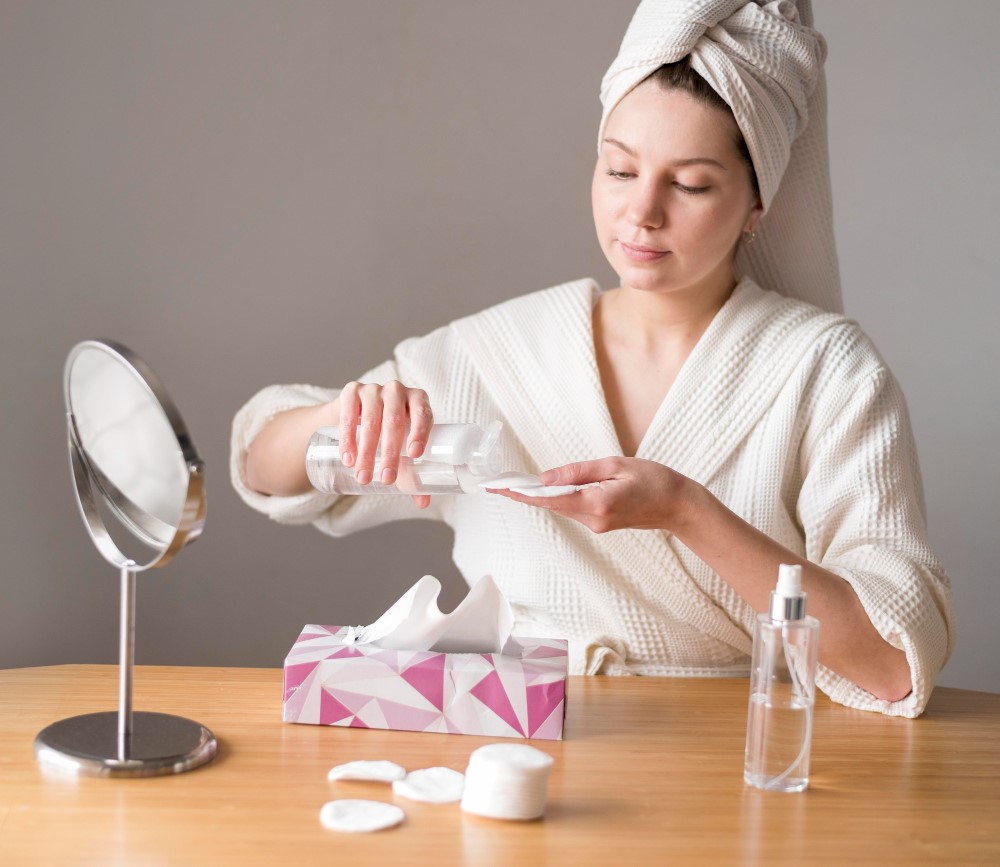
1.3 Applying Acne Treatment
After your toner has dried or after you have thoroughly cleaned and dried your face, apply acne treatment cream as directed. Wait a few minutes for the medication to fully absorb before applying moisturizer. Consult a dermatologist to choose the most suitable acne treatment for your skin condition.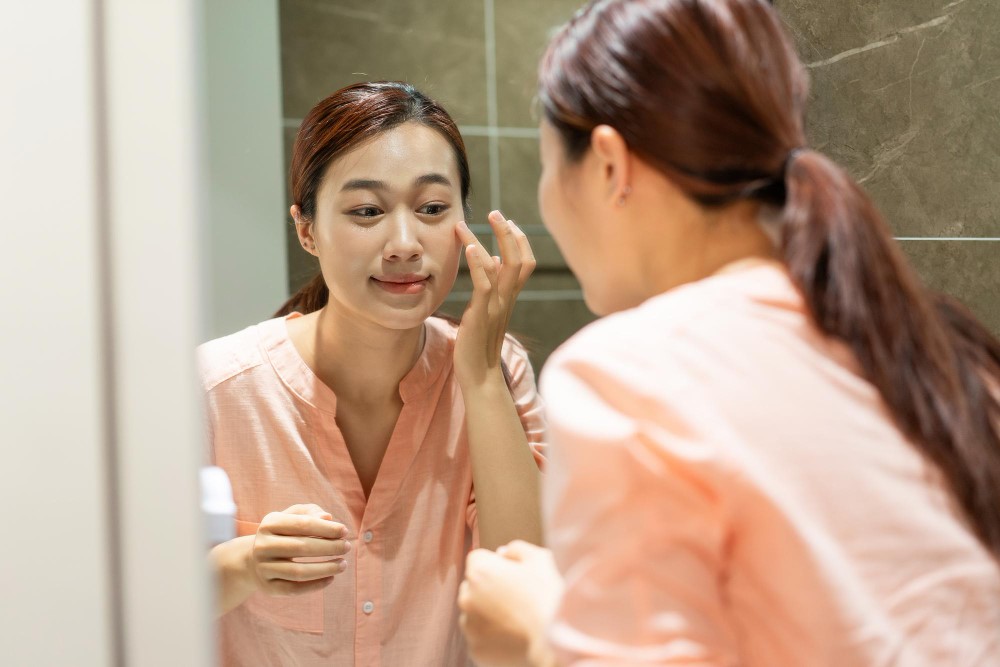
1.4 Applying Moisturizer
Many believe that moisturizers should not be used on acne-prone skin because they can clog pores. In fact, moisturizer is an essential part of an acne skincare routine. Acne treatment products often contain drying ingredients such as benzoyl peroxide, which can dehydrate your skin and cause redness and irritation. To reduce dryness and flaking, apply moisturizer twice daily.
Choose a gentle moisturizer that is oil-free and labeled "non-comedogenic" (does not clog pores). Also, look for products containing moisturizing ingredients such as glycerin and hyaluronic acid to hydrate your skin. Avoid products with a thick, greasy texture that contain acne-causing ingredients such as cocoa butter, mineral oil, or cold cream.
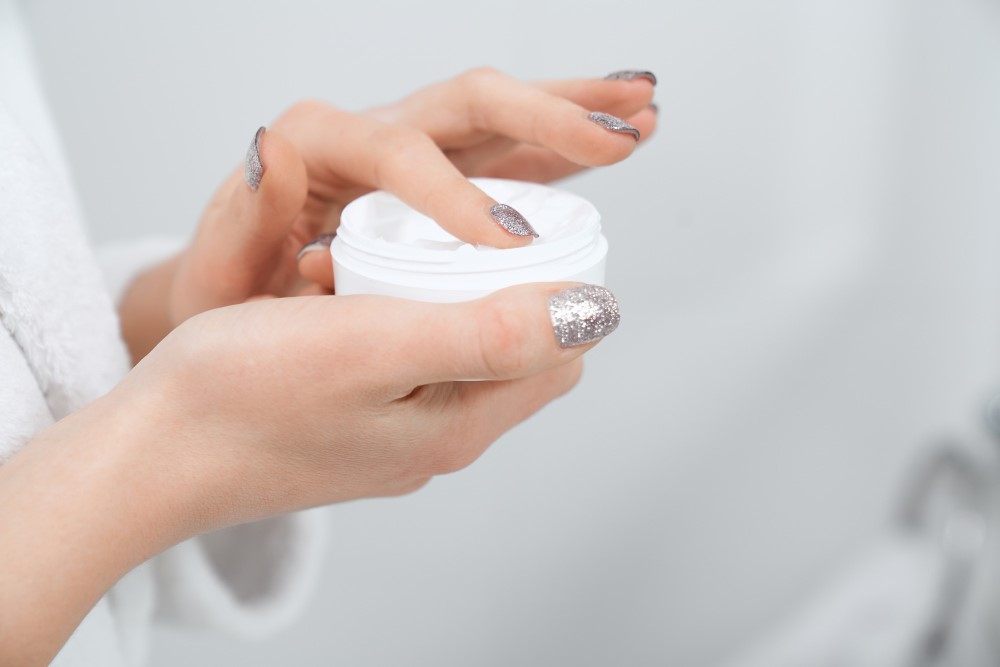
1.5 Applying Sunscreen
The final but crucial step in an acne skincare routine is applying sunscreen. Regular exposure to sunlight can cause wrinkles, dark spots, and increase the risk of skin cancer. To protect your skin, apply sunscreen whenever you go outside. Use broad-spectrum sunscreen with an SPF of at least 30 or physical sunscreen with at least 6% zinc oxide to protect your skin from both UVA and UVB rays. Spray or gel sunscreen is the best choice for those prone to acne. You can also look for the term "non-comedogenic" on the label to ensure that the sunscreen does not clog pores. Be cautious with chemicals such as PABA and benzophenone as they can irritate sensitive skin.
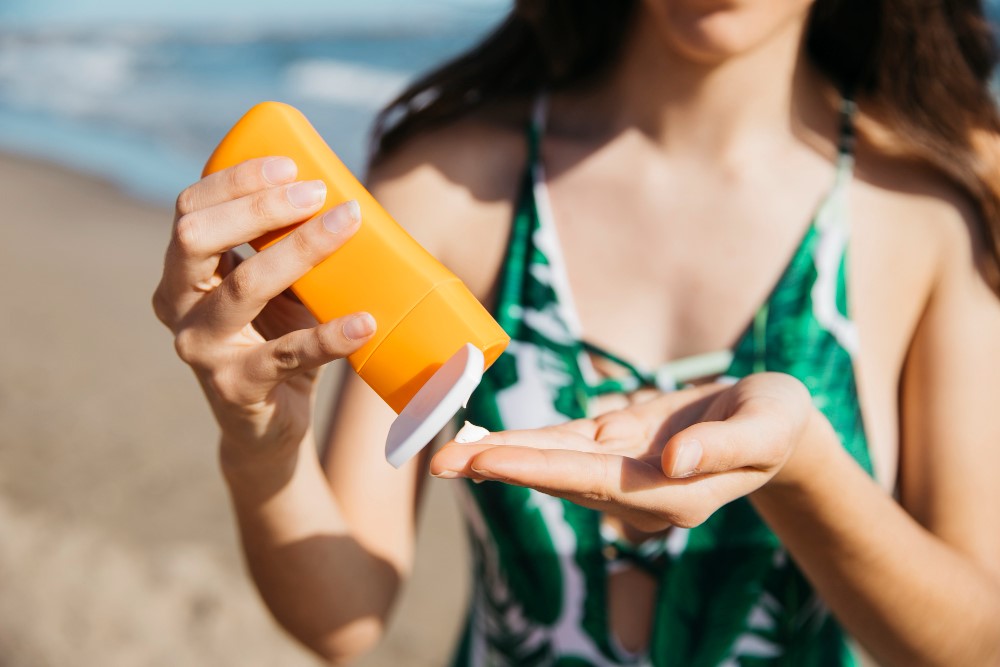
2. When Should You See a Doctor?
Mild acne can often be treated with over-the-counter products. However, if your acne does not improve, consider scheduling a dermatologist appointment. During your visit, you will be asked to provide a detailed medical history and current skincare regimen. The dermatologist will then examine your skin to determine if you truly have acne and what type and severity it is.
You may be prescribed medications, including topical treatments, oral medications, and lifestyle changes. Don't forget to return for regular check-ups so the dermatologist can monitor your skin's progress and update the most appropriate treatment plan.
In summary, a basic acne skincare routine should include facial cleansing, toner, acne treatment, moisturizer, and sunscreen. The key to successful acne treatment is patience. Stick with your treatment method for at least 1 month before considering trying a new approach, as acne treatment regimens can take up to 3 months to show noticeable results.
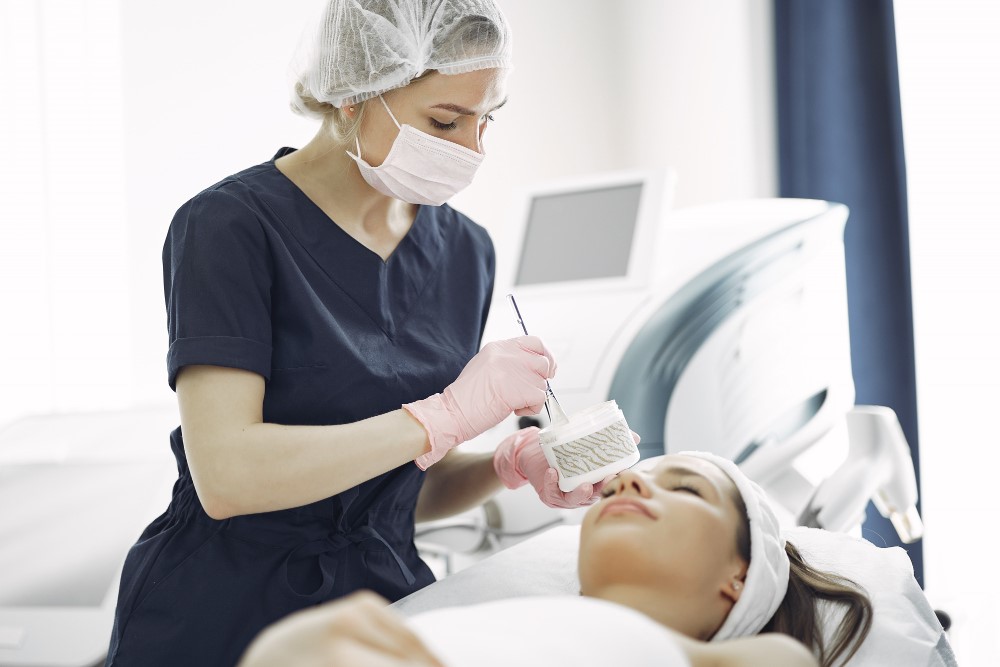
Related blog posts

Dermatology
The Growing Role of AI in Healthcare
Artificial Intelligence (AI) has become an integral part of modern life, with its influence growing rapidly, especially in healthcare.
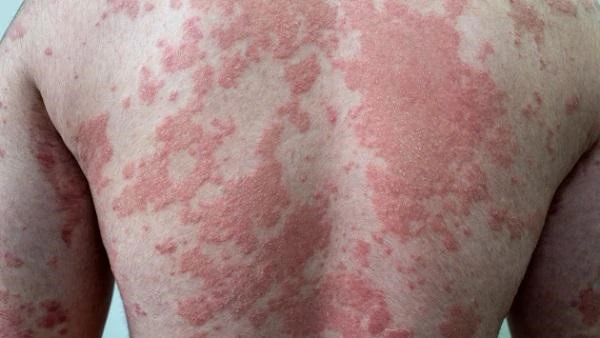
Dermatology
Understanding Psoriasis: Causes, Symptoms, and Treatment Options
Psoriasis is a chronic autoimmune skin condition that affects millions of people worldwide.
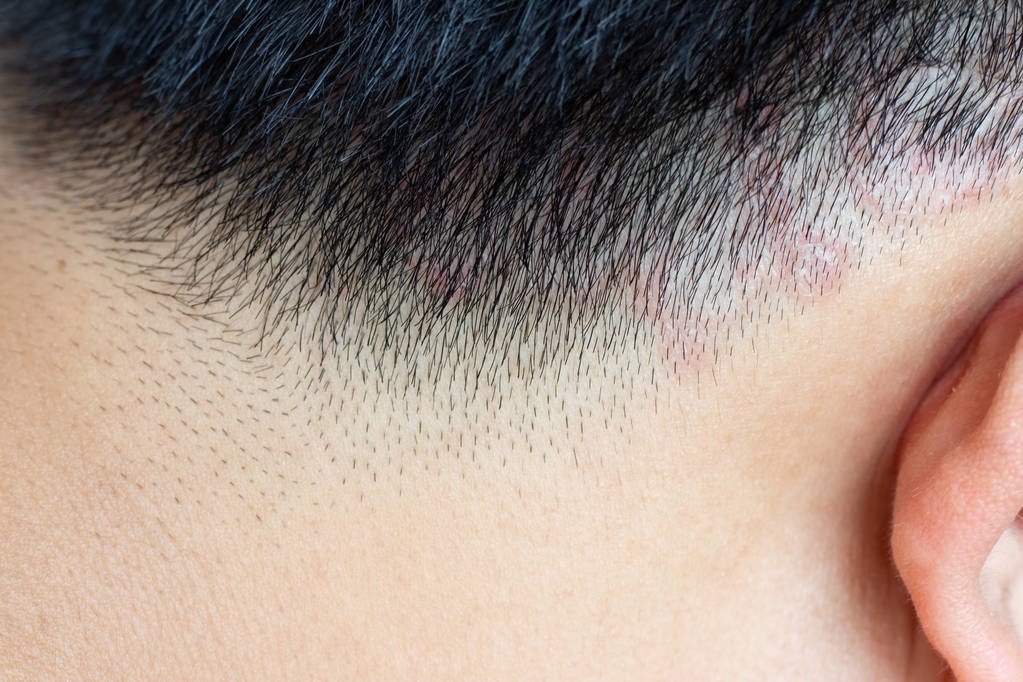
Dermatology
What is scalp ringworm?
Scalp ringworm is a fairly common skin condition. Let’s learn about scalp ringworm and how to treat it.